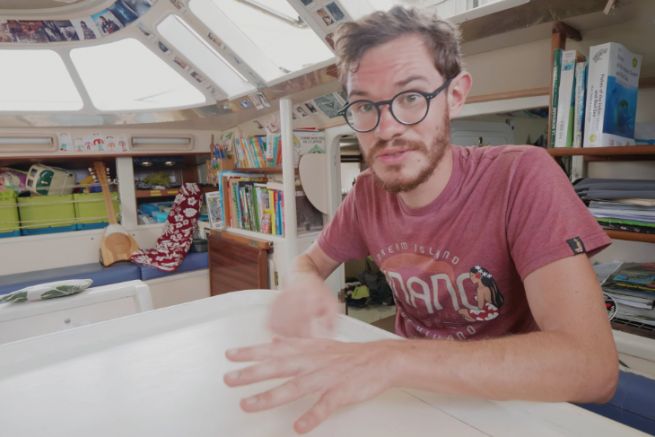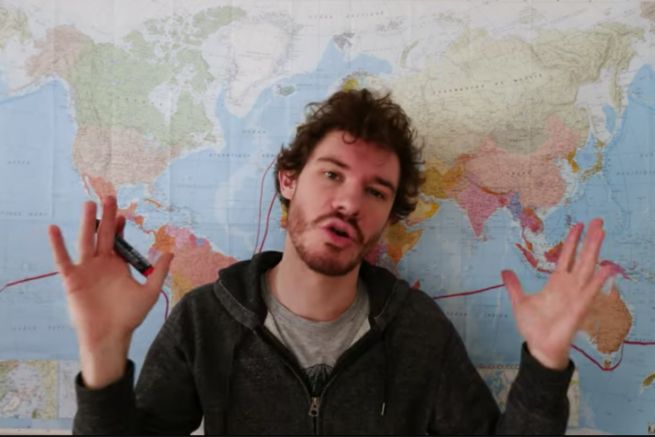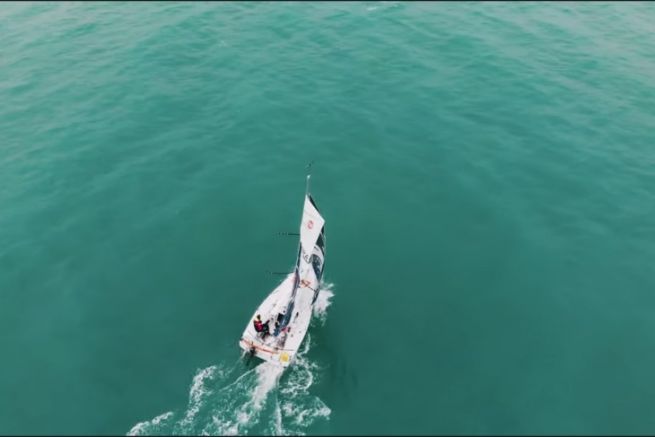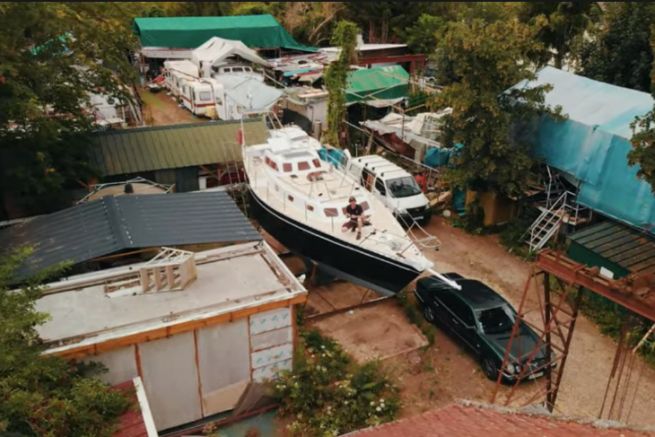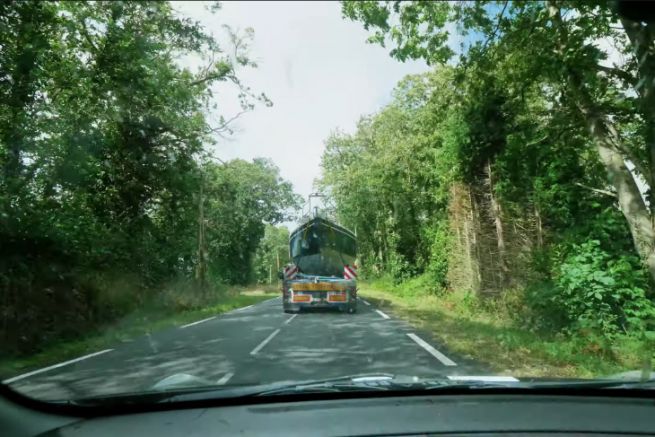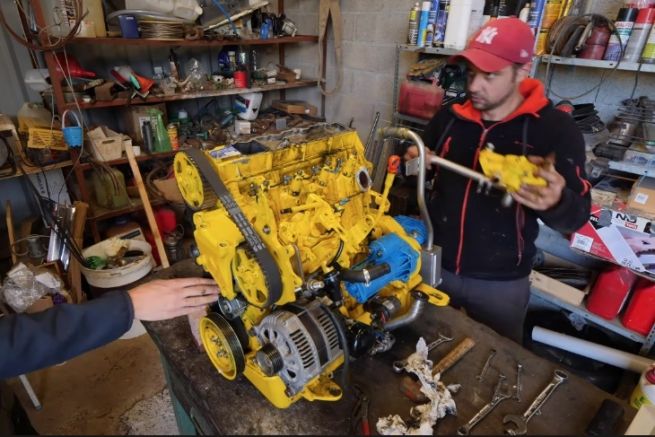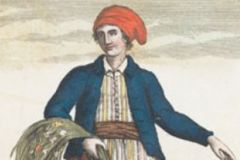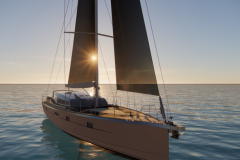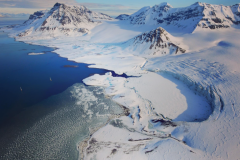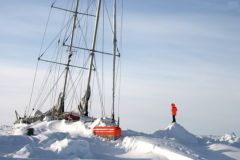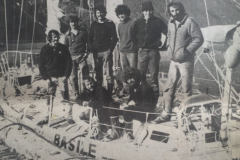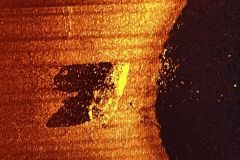Cameraman for Under The Pole
Victor Rault was cameraman for Under The Pole for several years, following their expeditions to Greenland and then French Polynesia.
"I met Ghislain Bardout and Emmanuelle Périé-Bardout of Under The Pole in 2013 in preparation for their expedition to Greenland. I was hired by a Parisian production company that was in charge of their film. Basically, I was gone for four months and I ended up staying 18 months as a volunteer."
This mission gives him a taste for adventure and expedition. Upon their return in 2015, the team worked on a new project: Under The Pole III and quickly obtained financial support from Azzaro. They then decided to hire a team for this project and chose among volunteers.
"So I started working with them on a permanent basis on all the preparations for the Northwest Passage, which we made in 2017."
Finally, after this 2nd expedition, Victor returns to his first love, film production. He becomes self-employed, making several shoots for Arte and a few one-off missions for Under The Pole. Finally, he takes part in their last project, Capsule, in French Polynesia.
"I was an underwater and land cameraman. I had to pass my diving diplomas in forced march to ensure the underwater part, but also the realization in the Capsule. In total, I spent about ten days of immersion, spread over several days, in the cylinder."
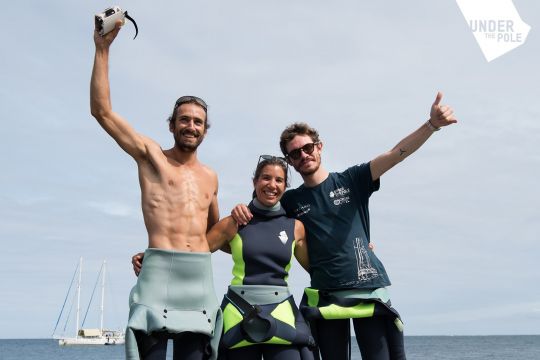
Discovering the world of Darwin
It was during this expedition that he came up with the idea for Project Darwin. While conducting an interview, he came across Darwin's diary - the author of the theory of evolution - in the library of the Why (Editor's note: Under The Pole's expedition ship) and discovered the account of his round-the-world voyage in the 19th century.
"I found the book really exciting. In addition to the naturalistic observations for which Darwin is well known, there is a whole human part with his emotions and feelings about his discoveries. He was 22 years old when he left and had only known the English countryside. From one day to the next, he found himself in the heart of the Atlantic rainforest. It fascinated him and he wrote it down. That intertwining of naturalist adventure and his feelings, it's fascinating."
As part of his world tour, he stopped in the Pacific, in Polynesia. And reading the description of the island where Darwin was, Victor immediately recognized Moorea, where he was also.
"This island he was describing was very similar to the one I was on. It wasn't called that at the time. I found it quite interesting to compare what I could see to what darwin described of the ecosystem. At the landscape level, but also complemented by the scientific discourses on coral reefs that we were studying, and in particular global warming and ocean acidification.
I thought that if this comparison worked in Polynesia, then it would work elsewhere. And so I was inspired to make the same journey that Darwin had made 200 years earlier to compare the biodiversity of yesterday and today."
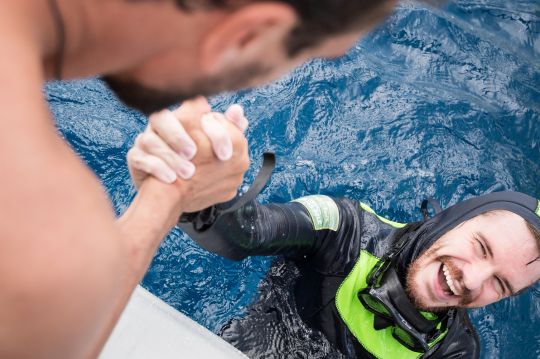
Around the world by boat
For his 4-year trip around the world, Victor chose to travel by boat. However, he does not know how to navigate and, above all, he does not have a boat.
"There are two reasons for this choice. The first is that I grew up in contact with Emmanuelle and Ghislain. Both personally and professionally. We've always lived on the "Why" and I've really enjoyed life at sea all these years. I've always told myself that I'd buy my own boat, but not just for a trip around the world on holiday. My boat project crystallized around this scientific voyage project.
The second reason is ecological exemplarity. For the realization of documentaries, I was brought for about 8 years to travel around the world to study environmental issues. However, the trips were made by plane. So I asked myself how to produce content, while continuing to travel and explore in a more ecologically sober way."

